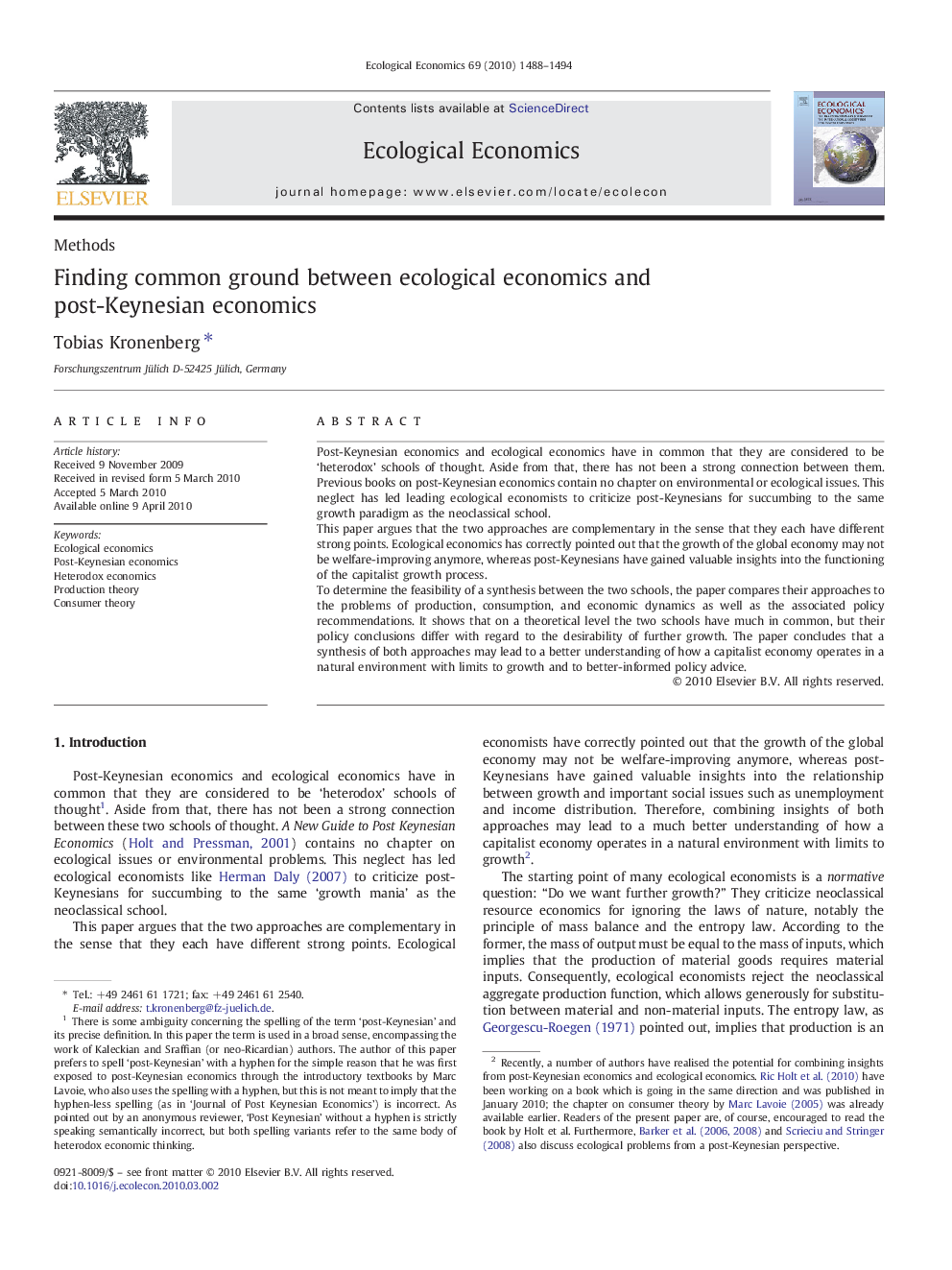| Article ID | Journal | Published Year | Pages | File Type |
|---|---|---|---|---|
| 5051068 | Ecological Economics | 2010 | 7 Pages |
Post-Keynesian economics and ecological economics have in common that they are considered to be 'heterodox' schools of thought. Aside from that, there has not been a strong connection between them. Previous books on post-Keynesian economics contain no chapter on environmental or ecological issues. This neglect has led leading ecological economists to criticize post-Keynesians for succumbing to the same growth paradigm as the neoclassical school.This paper argues that the two approaches are complementary in the sense that they each have different strong points. Ecological economics has correctly pointed out that the growth of the global economy may not be welfare-improving anymore, whereas post-Keynesians have gained valuable insights into the functioning of the capitalist growth process.To determine the feasibility of a synthesis between the two schools, the paper compares their approaches to the problems of production, consumption, and economic dynamics as well as the associated policy recommendations. It shows that on a theoretical level the two schools have much in common, but their policy conclusions differ with regard to the desirability of further growth. The paper concludes that a synthesis of both approaches may lead to a better understanding of how a capitalist economy operates in a natural environment with limits to growth and to better-informed policy advice.
